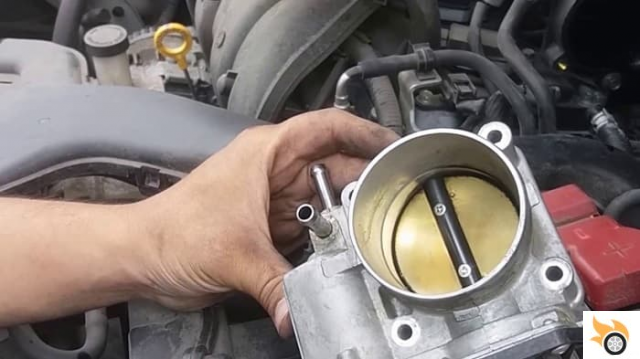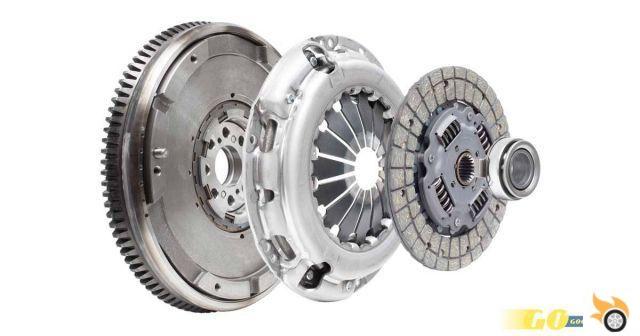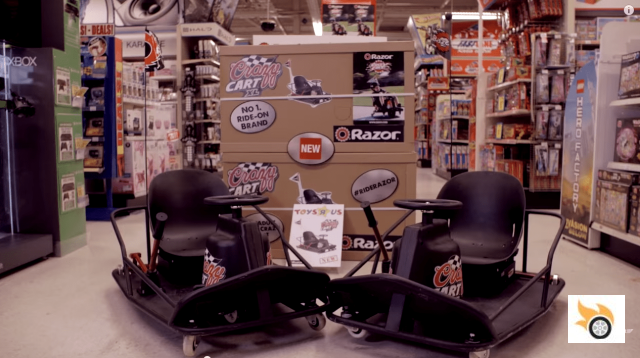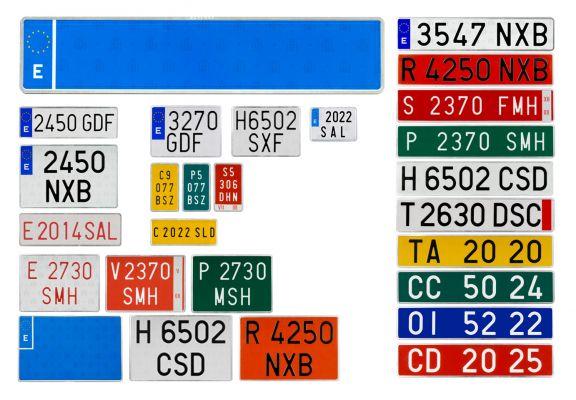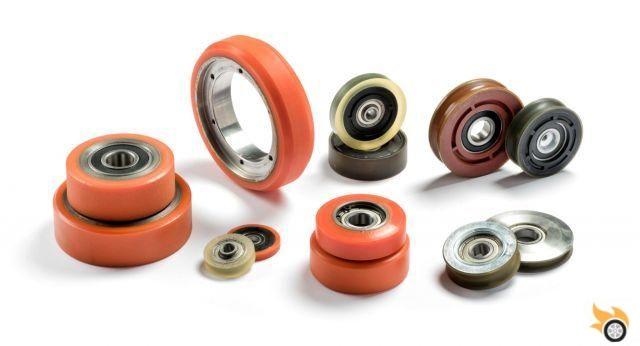
Welcome to our article where we will provide you with all the information you need to know about car bearings. Bearings are essential components in a car's suspension and steering system, so it's important to understand how they work, when to change them, and how to identify if they're faulty. In addition, we will tell you where you can find spare parts to change them and we will explain the importance of wheel bearings in the overall performance of the vehicle.
What are car bearings?
Car bearings are mechanical elements that allow smooth and frictionless movement of the wheels. They are designed to support loads and reduce resistance to movement, which helps improve the efficiency and performance of the car. Bearings are made up of a series of balls or rollers that are inside a metallic structure called the outer and inner ring.
When is it necessary to change car bearings?
Car bearings do not have a specific useful life, since their duration depends on several factors, such as the type of driving, road conditions and proper maintenance. However, there are some signs that indicate that the bearings need to be changed:
- Abnormal noises: If you hear squeaking, creaking, or humming noises coming from the wheels, the bearings are likely defective.
- Vibrations: If you feel excessive vibrations in the steering wheel or accelerator pedal, it could be an indication that the bearings are worn.
- Play in the wheels: If you notice that the wheels have excessive lateral movement, it is possible that the bearings are damaged.
- Uneven tire wear: If your tires are wearing unevenly, it could be due to a problem with the bearings.
If you experience any of these symptoms, it is advisable to go to a trusted mechanical workshop to carry out an inspection and determine if it is necessary to change the car's bearings.
How do you know if your car's bearings are defective?
In addition to the signs mentioned above, there are other ways to identify if the bearings in the car are defective:
- Visible wear: If you see visible damage to the bearings, such as cracks, corrosion, or excessive wear, they are likely defective.
- Abnormal temperature: If the wheels or bearings are hot to the touch after driving, it may indicate a problem with the bearings.
- Grease leaks: If you notice the presence of grease around the wheels, it may be an indication that the bearings are damaged and the grease is leaking.
If you suspect that your car's bearings are defective, it is important to address the problem immediately to prevent further damage to the vehicle's suspension and steering system.
Where to find parts to change car bearings?
If you need to change the bearings in your car, there are several options to find the right replacement parts:
- Mechanical workshops: Mechanical workshops usually have access to a wide variety of spare parts, including bearings for different car models.
- Auto parts stores: Specialty auto parts stores are also a good option, as they usually have a diverse inventory of bearings for different makes and models of vehicles.
- Internet: Currently, many online stores offer spare parts for cars, including bearings. It is important to make sure you buy from reputable sites and check parts compatibility before making a purchase.
Before purchasing car bearings, it is advisable to consult with a professional or review the owner's manual to ensure you are getting the correct parts.
Importance of wheel bearings in the car
Wheel bearings play a crucial role in the overall performance of the car. Some of the reasons why they are important are:
- Reduced Friction: Wheel bearings allow wheels to rotate smoothly and without friction, helping to improve efficiency and fuel consumption.
- Stability and safety: Wheel bearings in good condition guarantee stable and safe driving, as they help maintain control of the vehicle in curves and sudden maneuvers.
- Reduced wear on other components: Bad wheel bearings can cause premature wear on other components of the suspension and steering system, which can result in costly repairs.
In short, car bearings are essential components that allow smooth wheel movement and contribute to the overall performance of the vehicle. It is important to watch for signs of wear or defects in the bearings and make the necessary changes to ensure safe and efficient driving.
Frequently Asked Questions (FAQs)
1. How long do car bearings last?
The life of the bearings of the car can vary depending on several factors, such as the type of driving, road conditions and proper maintenance. In general, it is estimated that the bearings can last between 80,000 and 150,000 kilometers, but it is important to watch for signs of wear and defects to make the necessary changes.
2. Can I change the bearings of the car by myself?
Changing car bearings can be a complicated process and requires specific tools. If you do not have experience in automotive mechanics, it is advisable to go to a trusted mechanical workshop to change the bearings. Poor bearing replacement can cause further damage to the vehicle's suspension and steering system.
Conclusion
In conclusion, car bearings are essential components that allow smooth and frictionless movement of the wheels. It is important to watch for signs of wear and defects in the bearings, such as abnormal noises, vibrations and uneven tire wear. If the bearings need to be replaced, replacement parts can be found at mechanic shops, auto parts stores, and online. Wheel bearings play a crucial role in the overall performance of the car, reducing friction, ensuring stability and safety, and preventing premature wear of other components. Always remember to consult a professional if you have questions or need to make changes to the car's bearings.
Until next time.




